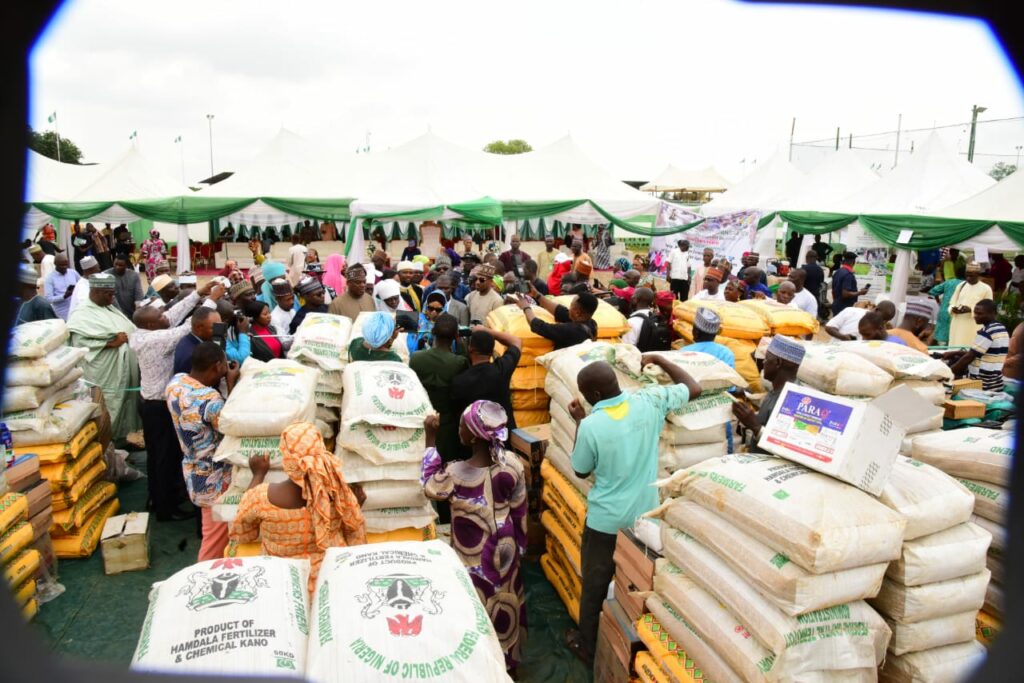In its bid to ensure food security, the federal government has begun the distribution of 60,000 agricultural inputs to farmers in five states: Kano, Jigawa, Kebbi, Niger, and Sokoto. These inputs are provided at subsidized costs, and they also come with a stern warning to beneficiaries against round-tripping.
Dr. Ernest Afolabi, The Permanent Secretary, Federal Ministry of Agriculture and Rural Development (FMARD), disclosed that the distribution at Bunkure Local Council of Kano State was sponsored by the National Agricultural Growth Scheme.
He also disclosed that the ceremony marks the beginning of this year’s delivery of subsidized inputs to 60,000 farmers in the participating states, adding that the event is very important to the ministry in helping the drive to increase agricultural productivity.
NSPFS, Edo Commences Distribution of Inputs for 2023 Farming Season
He explained that food security cannot be attained without guaranteed access to quality agricultural inputs such as fertilizers, seeds, and pesticides, whose distribution is part of the Agricultural Transformation Agenda Support Program-Phase One (ATASP-1) Project.
He went further to narrate that the government has devoted 80 percent of the total cost of the input package to paying the government, while the participating farmers are expected to pay the remaining 20 percent balance for the redemption of their inputs.
Gombe SWOFON Decries Lack of Access to Agricultural Inputs
Furthermore, he discloses that the program was organized to support 60,000 farmers in the five ATASP and 15 states with highly subsidized inputs in order to increase their production level, achieve economic well-being, and contribute substantially to the national agricultural product output.
Lastly, he wishes to instruct all the benefiting farmers to ensure full utilization of the inputs in their various farms in order to increase their farm harvest, which will bring about an increase in farm income.’’ Afolabi noted



